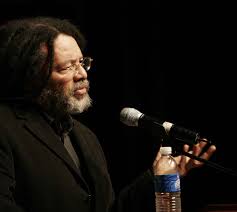We’re pleased to present a film of the 2015 Antipode RGS-IBG Lecture, Paul Gilroy’s “Offshore Humanism”.
Prof. Gilroy delivered the lecture in Exeter in September. He is Professor of American and English Literature at King’s College London, having previously been Giddens Professor of Social Theory at the London School of Economics (2005-2012), Charlotte Marian Saden Professor of African American Studies and Sociology at Yale (1999-2005) and Professor of Cultural Studies and Sociology at Goldsmiths (1995-1999).
Prof. Gilroy’s research interests include postcolonial studies, particularly with regard to London, postimperial melancholia, and the emplotment of English victimage; the cultural politics of European decolonisation; African American intellectual and cultural history, literature and philosophy; the formation and reproduction of national identity, especially with regard to race and “identity”; and the literary and theoretical significance of port cities and pelagics. He has also published on art, music and social theory.
His many publications include “There Ain’t No Black in the Union Jack”: The Cultural Politics of Race and Nation (Unwin Hyman, 1987), The Black Atlantic: Modernity and Double Consciousness (Verso, 1993), After Empire: Melancholia or Convivial Culture? (Routledge, 2004) and Darker than Blue: On the Moral Economies of Black Atlantic Culture (2010, Harvard University Press).
You can watch “Offshore Humanism” here.
The Antipode Foundation and Antipode‘s publisher Wiley sponsor sessions at the annual meetings of the Association of American Geographers (AAG) and Royal Geographical Society (with the Institute of British Geographers) (RGS-IBG). These annual international conferences are widely seen as vital venues for the exchange of cutting-edge ideas, and we invite presenters who represent both the political commitment and intellectual integrity that characterise a radical journal of geography.
Wiley films the lectures, making them freely available online, and provides refreshments; some speakers choose to submit essays to be peer-reviewed and, if successful, published in Antipode; and we pull papers from the digital archive – both pieces by the speakers and those speaking to their concerns.
The lectures are inspiring and often provocative presentations from leading scholars, and over the years a wonderful array of colleagues have presented.
You can watch the films, read the Antipode essays, and explore virtual issues here.

Reblogged this on Progressive Geographies and commented:
Paul Gilroy’s Antipode lecture – ‘Offshore Humanism’